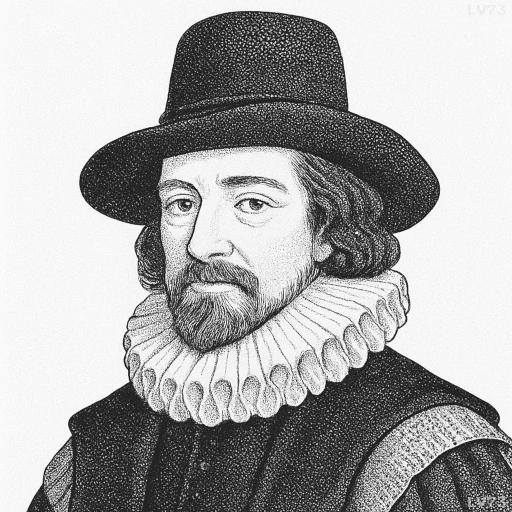“Science is but an image of the truth.”

- January 22, 1561 – April 9, 1626
- Born in England
- Philosopher, theologian, jurist, politician, aristocrat
table of contents
Quote
“Science is but an image of the truth.”
Explanation
In this quote, Francis Bacon suggests that science provides a reflection or approximation of truth, but it is not the truth in its entirety. Bacon views science as a method of uncovering certain aspects of the world, through observation, experiment, and reasoning, yet acknowledges that it is limited in its scope. While science can uncover truths about the natural world, it may not fully capture the deeper, more metaphysical or moral truths that lie beyond empirical study. Science, in Bacon’s view, offers a partial and pragmatic understanding of reality, but it is not the whole picture of truth, which encompasses more than what can be measured or observed.
Bacon’s perspective aligns with the Renaissance emphasis on empiricism and the scientific method, which were beginning to revolutionize human understanding during his time. While Bacon believed deeply in the power of science to uncover natural truths, he was also aware of the limitations of scientific knowledge in addressing the broader, more profound questions of life, existence, and morality. For Bacon, science is a powerful tool, but it must be recognized as part of a larger pursuit of knowledge, one that also includes philosophy, ethics, and theology.
In modern times, this quote still resonates in the context of scientific inquiry and philosophy. While science continues to expand our understanding of the physical world, there are still many aspects of human experience—such as consciousness, morality, and the meaning of life—that science alone cannot fully explain. Bacon’s insight encourages us to view science as a crucial means of gaining knowledge, but also to recognize that it is not the only way to understand the complexities of truth. True understanding comes from a combination of empirical investigation and a broader, more holistic view of the world, incorporating philosophy, art, and human experience.
Would you like to share your impressions or related stories about this quote in the comments section?
